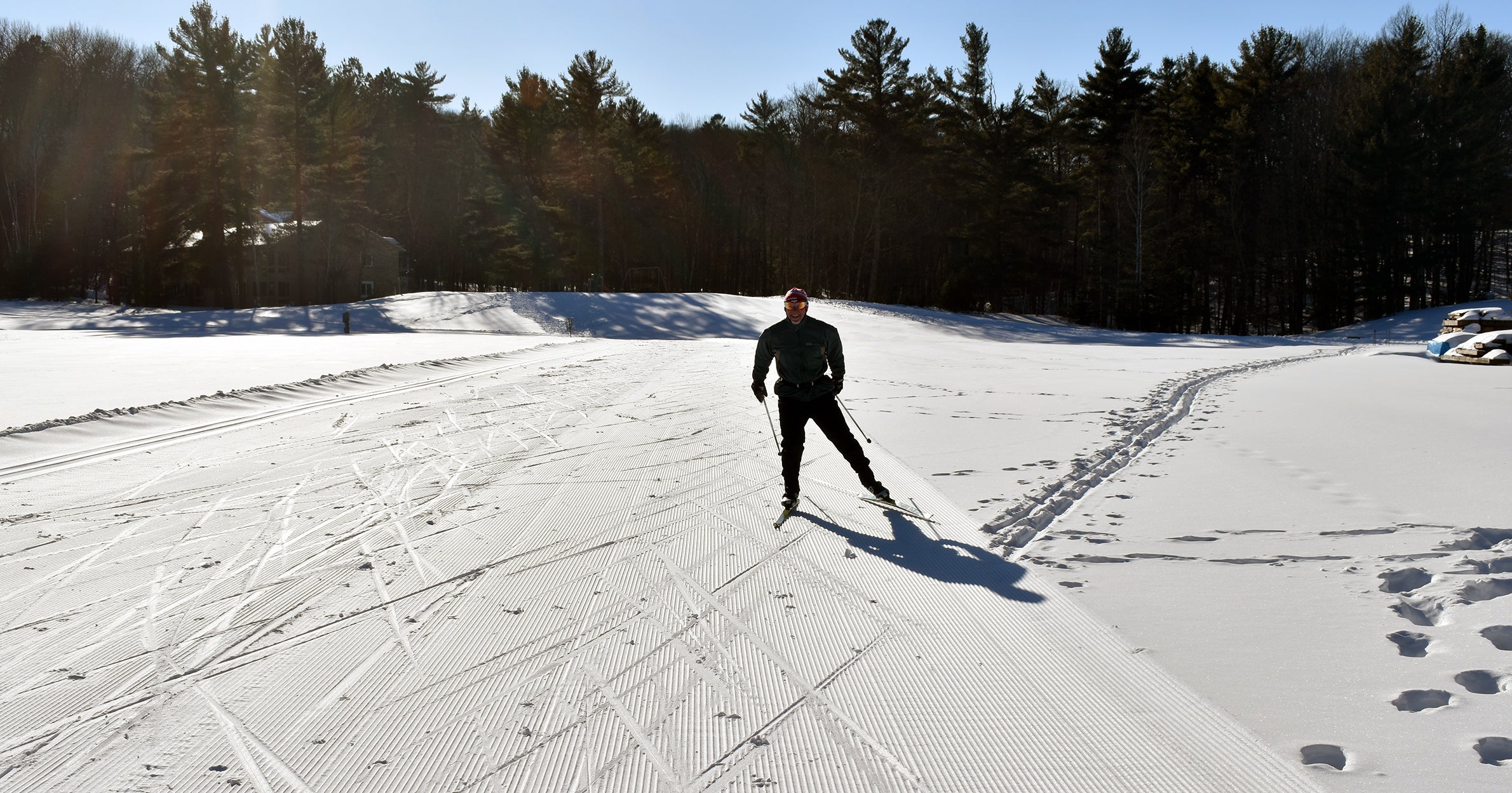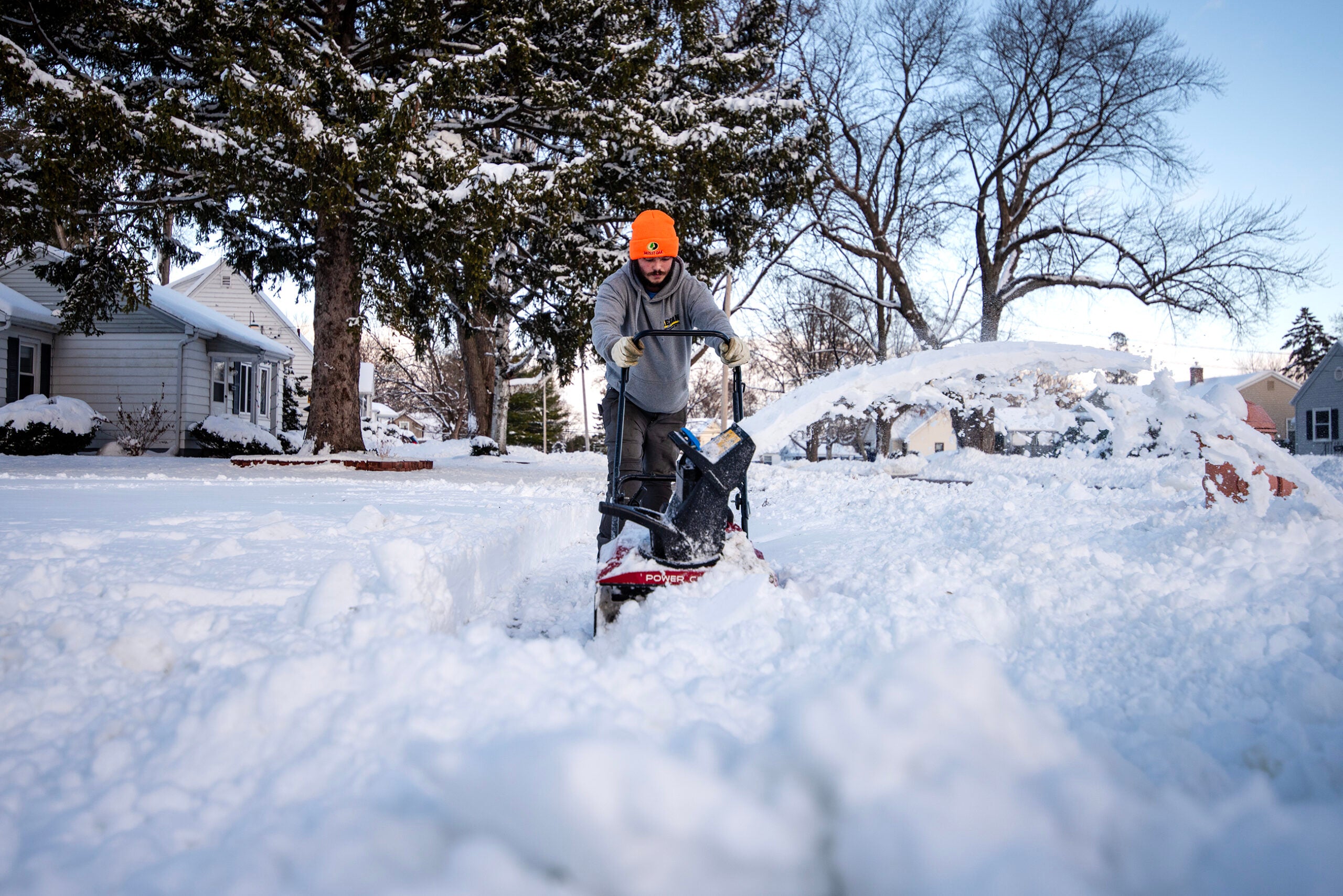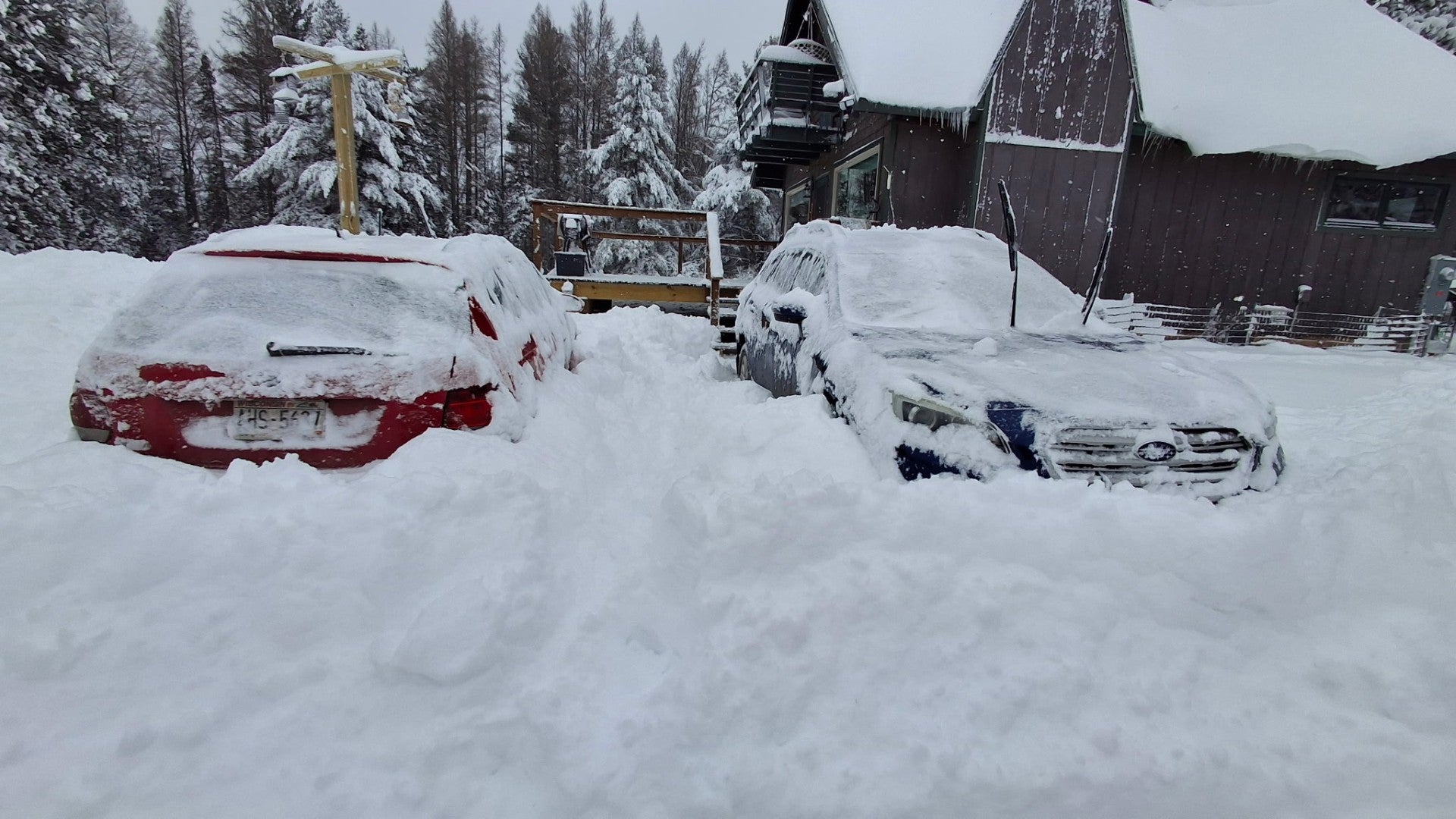Whether it’s Seasonal Affective Disorder or just a case of the winter blues, a lot of people are wishing that spring would arrive a little sooner. Larry Meiller finds out how we can thrive in winter instead of just settling for getting through the season.
Featured in this Show
-
Sick Of Winter? An Emotional 'Survival Kit' Can Help People Thrive In The Cold
When Jimmy the Groundhog or Punxsutawney Phil sees his shadow, many people groan that there are six more weeks of winter. But to be honest, most Wisconsin winters last that long anyway.
There are, however, people who actually get excited about a longer, snowier winter. According to psychologist Shilagh Mirgain, they likely have an emotional “winter survival kit” that gets them through.
Mirgain is a senior health and sports psychologist at the University of Wisconsin Hospital and Clinics. Her clinical interests include psychotherapy with patients with mood, anxiety disorders and adjustment issues. She said that 10 to 20 percent of Americans suffer from the winter blues, and notes that “this number is higher in northern states like Wisconsin.
“Especially in a winter like this where it’s been so cold, many people have been talking about feeling more down and struggling,” Mirgain said.
Mirgain said she knows about that emotional survival kit from personal experience. She made the move from northern California to Madison, wondering how she would cope with Wisconsin winters.
“I really struggled my first two years, and especially that year when we had over 100 inches of snow,” she said. “I was lethargic, fatigued, and feeling down. And I thought, ‘Unless I’m going to move, I need to create a way for not just surviving but thriving,’ and thus the idea of a winter survival kit.”
Mirgain added that since people carry a survival kit in our car, “we should have one in our life, because it’s a long season, and we have to figure out how to get through it in the best way.”
Listeners to “The Larry Meiller Show” had some great suggestions for loving winter. A caller who identified himself as Dick from Viroqua said that he’s really taught himself to appreciate the subtleties of colors in nature in the fall and winter.
“In the wintertime, I especially look at the shadows on the snow in the late afternoon. I just think it is so gorgeous to see the trees casting a shadow on the snow. I look forward to that.” Dick said.
A caller who identified herself as Lynn in Lake Forest, Ill., had a similar approach.
“For those of us confined to the great indoors, we still can look out and see the beauty of the winter skies. Especially in the early mornings, the pre-sunrise, often there’s this pinky, peachy, lavender color combination. It’s short-lived, but it’s spectacular,” she said.
She also noted that because deciduous trees don’t have their leaves in the winter, one can actually see more of the sky in winter than at other times of the year.
A bonfire supper outside followed by a sci-fi movie marathon is the approach for a listener who identified himself as Dave from Menomonee Falls. He said not only is it a fun activity, but it’s a great social connection to counter the isolation that often happens in bad weather.
Listeners also shared their thoughts on Facebook. August said, “I get my kids outside everyday all winter going geocaching. We also enjoy downhill skiing. Just getting out, exercising and realizing you can still have fun keeps us going.”
Advice that could be useful any time of the year came from listener Terry on Facebook: “Laugh, Laugh, Laugh winter away! Each morning no matter what the season I stand in front of the mirror and laugh. Just seeing yourself doing this makes you laugh even more! It’s contagious so expect the kids to join in and what a wonderful way to begin the day for everyone. Even later in the day when you feel less than stress free, just remembering how you look laughing at yourself will make you laugh even more!”
UW officials published an article focusing on Mirgain’s work. Here is the advice it shared:
- Change your mindset
“If we can’t get out of winter, it’s better to get into it,” Mirgain said. “There can be some unique aspects of this season we can look forward to or enjoy.”
She recommends planning something special they can look forward to during these months, such as a favorite activity, spending time on a hobby or just treating oneself to a few things that bring joy.
- Work toward a goal
Take the time to ask what energizes themselves. Revisit goals, then plan out what the person would like to accomplish during the next few months, such as traveling to new destinations, or volunteering for a worthy cause.
- Be active and stay connected
Exercise is “one of the most protective factors against depression,” Mirgain said. “Movement is the goal.”
She suggested people consider trying ice skating, snowshoeing or cross-country skiing — or building a fort in the snow and going sledding with children. Getting outside and exposing the body to sunlight while exercising can improve energy, mood levels and lead to better sleep. To combat isolation, connect with others in person, by phone or email, she said.
- Vitamin D3
Wisconsinites don’t get enough vitamin D during the winter months. “The sun’s rays are not strong enough to give us what we need,” she said.
The daily recommendation in the U.S. is 1,000 international units, but Mirgain said consult with your doctor about taking supplements. Mushrooms and fish are also a good natural source of vitamin D.
- Call your doctor
Speak with a physician if feelings of being down and not interested in the things someone used to be continue to linger, especially if the symptoms are disruptive or there are thoughts of suicide.
Episode Credits
- Larry Meiller Host
- Judith Siers-Poisson Producer
- Dr. Shilagh Mirgain Guest
Wisconsin Public Radio, © Copyright 2025, Board of Regents of the University of Wisconsin System and Wisconsin Educational Communications Board.





